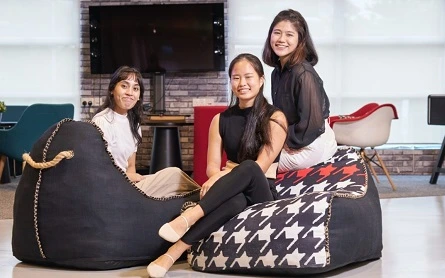
Getting young women to run the tech world
By encouraging a shared interest in all things tech, the Cross-Polytechnic Girls in Tech committee provides a community for young women to nurture their passions and tech aspirations.
Be aware of scammers impersonating as IMDA officers. Government officials will NEVER call you to transfer money, disclose bank log-in details or request for your personal information. For scam-related advice, please call the ScamShield Helpline at 1799 or go to www.ScamShield.gov.sg.

This is our vision for the future of digital, and how we are bringing it to life.